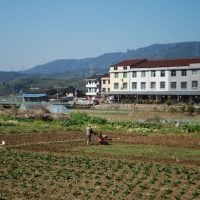Deadline: 10 April 2018
The European Union (EU) is seeking proposals for its Grant Scheme for EU-Turkey Intercultural Dialogue (ICD) to form an effective network among the cultural institutes of EU and Turkey through intense cultural exchange in the framework of collaborative activities.
The specific objective of this call for proposals is to enhance intercultural dialogue between civil societies in Turkey and Europe in the area of culture and art, along with collaboration, development and implementation of long term multinational / multilateral joint cultural initiatives and communication and promotion activities.
Priorities
The proposed action (project) should fall in one or both of the below mentioned priority areas:
- Developing and implementing long-term multinational/multilateral joint cultural initiatives in Turkey and in the EU to contribute to mutual understanding
- Increasing the visibility of EU-Turkey civil society dialogue in Turkey and in the EU Member States
Funding Information
Any grant requested under this call for proposals must fall between the minimum amount: EUR 300.000 and maximum amount: EUR 500.000
Eligibility Criteria
- Lead applicant
- In order to be eligible for a grant, the lead applicant must:
- be a legal person, and
- be established in a Member State of the European Union or established in Turkey or an eligible country according to the IPA Regulation , and
- For British applicants: Please be aware that eligibility criteria must be complied with for the entire duration of the grant. If the United Kingdom withdraws from the EU during the grant period without concluding an agreement with the EU ensuring in particular that British applicants continue to be eligible, applicants will cease to receive EU funding (while continuing, where possible to participate) or be required to leave the project on the basis of Article 12.2 of the General Conditions to the grant agreement.
- be directly responsible for the preparation and management of the Action with the co-applicant(s) and affiliated entity(ies), not acting as an intermediary and
- be national institute of culture or national body that is a EUNIC member before the submission deadline of this grant scheme and engaged in cultural activities beyond their national borders .
- The lead applicant must declare that the lead applicant himself, the co-applicant(s) and affiliated entity(ies) are not in any of these situations.
- The lead applicant must act with at least one co-applicant as specified hereafter.
- In order to be eligible for a grant, the lead applicant must:
- Co-applicant(s)
- Co-applicant(s) participate in designing and implementing the Action, and the costs they incur are eligible in the same way as those incurred by the lead applicant.
- Co-applicant(s) must satisfy the eligibility criteria as applicable to the lead applicant himself.
- In addition to the categories referred to in section (lead applicant), the following institutions are also eligible as co-applicants:
- CSOs from Turkey (associations; foundations; federations/confederations of associations or foundations ), or
- CSOs from EU Member States or other eligible countries according to the IPA Regulation except Turkey (associations; foundations; federations/confederations of associations or foundations established as not-for-profit companies/charitable organizations ), or
- Universities from EU Member States and/or Turkey and/or other eligible countries according to the IPA Regulation.
- If awarded the grant contract, the co-applicant(s) will become beneficiaries in the Action (together with the Coordinator).
- It is highly recommended to have tools signed between lead applicants and co-applicant(s) (such as agreements, protocols) to sustain the partnership after the completion of the project.
- There is no maximum number of co-applicants but careful consideration should be given during the identification of co-applicants to ensure that each co-applicant has a clearly defined role in the project and has seen the submitted application as well as the budget for a smooth implementation of the project if awarded grant.
- Affiliated entities
- The lead applicant and its co-applicant(s) may act with affiliated entity(ies).
- Only the following entities may be considered as affiliated entities to the lead applicant and/or to co-applicants:
- Only entities having a structural link with the applicants (i.e. the lead applicant or a co-applicant), in particular a legal or capital link.
- This structural link encompasses mainly two notions:
- Control, as defined in Directive 2013/34/EU on the annual financial statements, consolidated financial statements and related reports of certain types of undertakings:
- Entities affiliated to an applicant may hence be:
- Entities directly or indirectly controlled by the applicant (daughter companies or first-tier subsidiaries). They may also be entities controlled by an entity controlled by the applicant (granddaughter companies or second-tier subsidiaries) and the same applies to further tiers of control;
- Entities directly or indirectly controlling the applicant (parent companies). Likewise, they may be entities controlling an entity controlling the applicant;
- Entities under the same direct or indirect control as the applicant (sister companies).
- Entities affiliated to an applicant may hence be:
- Membership, i.e. the applicant is legally defined as a e.g. network, federation, association in which the proposed affiliated entities also participate or the applicant participates in the same entity (e.g. network, federation, association) as the proposed affiliated entities.
- Control, as defined in Directive 2013/34/EU on the annual financial statements, consolidated financial statements and related reports of certain types of undertakings:
How to Apply
- The application procedure consists of two phases:
- Concept notes
- Full applications
- The concept note together with the declaration by the lead applicant must be submitted at the address given on the website.
Eligible Countries: Austria, Belgium, Bulgaria, Czech Republic, Croatia, Cyprus, Denmark, Estonia, Finland, France, Germany, Greece, Hungary, Ireland, Italy, Latvia, Lithuania, Luxembourg, Malta, Netherlands, Poland, Portugal, Romania, Slovakia, Slovenia, Spain, Sweden, United Kingdom, and Turkey.
For more information, please visit Europeaid and download the guidelines.









































